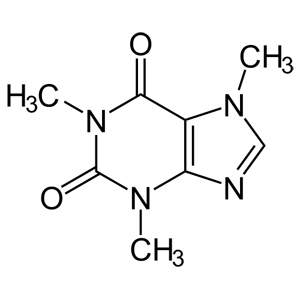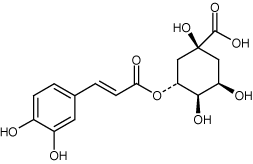By: Gaby Talarico
Coffee is a staple beverage in the United States for the average adult- a morning would not be complete without a steaming cup of deliciousness on the way to work. How do you like it? With cream and sugar? Perhaps you like it with just milk? Or do you just like it black? However you like it, have you ever thought about how coffee impacts your health, and not just how good it tastes? Good news my fellow coffee fanatics…there is a lot of research out there seeking to answer that exact question!

Caffeine
First, let’s review some of the major bioactive components in a brewed cup of coffee, starting with the most obvious: caffeine. Desirable to some because of its stimulatory properties, caffeine gives a jolt to the central nervous system and cardiac muscle. It’s no wonder we college students become addicted to coffee, all of those late nights need a stimulus to get work done. Now, most of us have experienced the symptoms of caffeine withdrawal- those dreaded headaches you get when you skip your morning cup. Well, apparently caffeine may also be able to help relieve headaches unrelated to your addiction to the brew. A double-blinded, placebo controlled study showed that individuals who consumed caffeine, in amounts equivalent to one or two strong cups of coffee, experienced headache relief comparable to that of acetaminophen [1]. So maybe the next time you get a headache and you are out of Tylenol, go get a cup of coffee- it might help!
Coffee also has quite a few phenolic compounds, but one that has received a bulk of scientific attention is chlorogenic acid. In vitro studies have shown the high antioxidant activity of coffee, and chlorogenic acid, among other phenolics, is thought to be a major contributor [2]. Antioxidants are thought to be beneficial because they theoretically help sequester disease-causing free radicals in the body. Whether or not coffee actually effectively modulates oxidative stress in humans has yet to be proven. Nonetheless, because of the high antioxidant content of coffee, there is a considerable amount of work being done to investigate the potential benefits of the beverage with regard to several cancers and heart disease, among other illnesses. In all, epidemiological and animal studies have turned up mixed results as to whether or not coffee can affect these diseases. Interestingly, there is also some epidemiological and experimental evidence pointing to a role of coffee in the prevention of type II diabetes, much of which is potentially due its chlorogenic acid content [3]. Truthfully, most of the clinically confirmed evidence related to coffee has been attributed to its caffeine content, but it is clear that there is a great amount of interest in bridging the gap between in-vitro results and the true benefits of the drink.

Chlorogenic Acid
Don’t leave just yet! I know that you are dying to go make that antioxidant, caffeine-rich cup of coffee right now, but you must also know that there may be some negative effects of coffee consumption, too. Excessive caffeine intake can cause anxiety, nausea, restlessness, and even problems with blood pressure. It is important to note that these effects should be taken with a grain of salt because they vary individual-to-individual depending on sex, age, and size, and genetic background [4]. Not everyone will receive all of the side effects, but it is good to have an understanding of what can happen. If you are very concerned about these precautions, you can always consult your doctor about the subject.
Another possible downfall of coffee consumption is the “fixings” that people tend to add. An example scenario that a lot of Americans experience is that initial step into a coffee shop. This step brings tantalizingly sweet smells and pretty pictures of coffee creations. Then, people see the long list of delectable coffee combinations and BAM…the average coffee drinker turns into a person who orders the venti double chocolate mocha with extra whipped cream. These extra flavors added to coffee may taste good, but they also add a whole lot of extra calories [5].
When you sum it all up…don’t let the precautions scare you from enjoying a cup of Joe. Coffee can be a great pick-me-up in moderation and also has a rich profile of antioxidants that may come with some health benefits. Remember that you should always adjust your consumption based on what your body can handle and finally put the extras down so you don’t let the sweet taste of coffee impact the waist line. Pour your favorite blend, grab a good book and enjoy. Ah….

www.giphy.com
References:
[1] Ward N, Whitney C, Avery D, Dunner D. 1991. The analgesic effects of caffeine in headache. Pain 44:151-155.
[2] George SE, Ramalkshmi K, Rao LJM. 2008. A perception on health benefits of coffee. Crit Rev Food Sci 48:464-486
[3] Akash MSH, Rehman K, Chen S. 2014. Effects of coffee on type 2 diabetes mellitus. Nutrition 30:755-763.
[4] Gonzalez de Mejia E, Ramirez-Mares, MV. 2014. Impact of Caffeine and Coffee on Our Health. Trends Endocrin Met 25(10):489-492.
[5] Lee, Thomas H. 2009. Good News for Coffee Addicts. Harvard Business Review 87(6).






Great post! I enjoy reading about all many benefits of my favorite caffeinated beverage .
How would we all feel if there was no coffee in the world? Depresso.
Hah! Kidding. Good thing I’m a food scientist and not a comedian!
Hah! Would most DEFINITELY be depresso!
Hay even more reasons to drink coffee. next time someone says you drink to much coffee you can always just turn around and say no I’m having my vitamins and high the natural way. and all in one warm cupful who could ask for. I hope those test about helping with Cancers and diabetes turn out to be true. Chemotherapy rooms would be much more happier places.
Who knew there were so many benefits to coffee! Glad to know my daily dose is actually to my benefit.